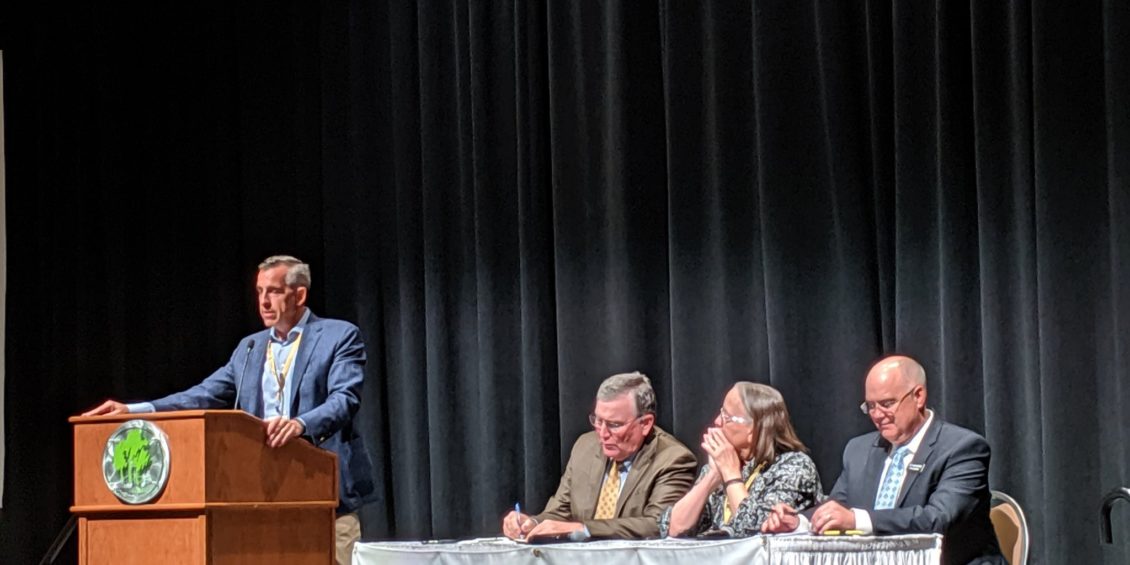
This morning, I sat down to run through my schedule for the rest of the week. With at least one thing on the calendar for each day, it reminded me of something Abigail Adams said, “Learning is not attained by chance, it must be sought for with ardor and diligence.”
Over the last few weeks, I’ve done my best to seek learning. From summits on cybersecurity and healthcare to the spring JFAC interim meeting, I’ve worked through multiple stacks of information. Now, it’s on to arranging all that data into a meaningful order.
Never Stop Learning
It’s one of the key reasons I love serving you in the Idaho House. To do this job well, you can never stop learning. There will always be information that adds clarity to what’s known or reveals something new entirely.
For instance, I don’t have the direct experience of the folks we entrust to manage the state’s business on a day-to-day basis. On the JFAC tour, it was helpful to hear firsthand what’s working and what’s not, and what suggestions people have to improve the situation. These details play a critical role in the ongoing business of assessing the state’s overall health.
During the legislative session, getting this level of detail is difficult. Many of these officials are based outside of Boise, and the pace of the session doesn’t leave a lot of extra time to have these conversations. I appreciate their willingness to answer questions and to help us better understand department operations.
But what happens after the conversations matters, too. How do we take this information and put it to work?
Learning Requires Context
It starts with adding context. I have pages of notes filled with comments and feedback I heard during these different meetings. Now, I need to figure out how what I’ve learned fits into the bigger picture. I get why this point sounds so obvious. But it’s a step that sometimes gets glossed over when questions come up about why a suggested change isn’t happening RIGHT NOW.
No matter how good the new information sounds, we still need to figure out how it applies. We also need to determine if making one change over here will create a domino effect somewhere else.
I’ll get to practice this process over the next few months as I serve on the interim committee that will address how to cover the costs of Medicaid expansion. These meetings will include discussions about our current indigent and catastrophic funds, and wherever we land with our recommendation, we’ll need to weigh the consequences for our communities. Then, come January, it will be up to the legislature to decide how to proceed.
Most of the time, we’re trying to make the best decision possible with the information that’s available. That’s all we can do in the moment. But the real test comes next. Do we push ourselves to keep learning so the next time we’re faced with a decision we’re better prepared than the last time?